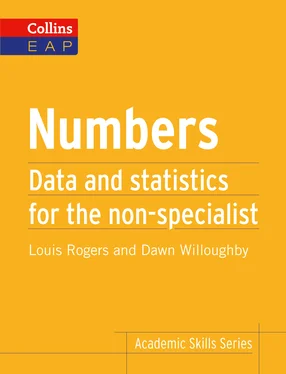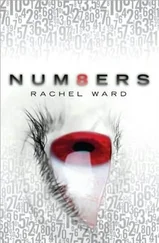This chapter will help you to consider some of these key issues. It gives you practical steps to formulate research questions, and helps you understand the basic principles of sampling and to understand the cause and effect nature of hypotheses.
Formulating research questions
Doing a research project is both exciting and challenging at the same time. Research projects at the end of a Bachelor’s or Master’s (BA, BSc, MA, MSc) degree are commonly called a dissertation or a thesis. You usually have a lot of freedom to choose the area you want to research, although sometimes you may be given a choice of questions about a broad area of research to look into. You can start to think about the area you want to research very early on, but try not to narrow it down too soon before you are ready to begin.
It is a good idea to choose a topic or area that interests you, perhaps from a module you enjoyed or a topic that has stimulated your interest in a new area. Sometimes it can be a challenge to think of an area, so talk about it with tutors, friends or other students and perhaps look at some previous projects in your area of study.
Exercise 1
Follow these steps to help find an area that interests you.
1Brainstorm the different subjects from your degree.
2Think about particularly interesting modules.
3Think of an interesting area from that module.
4Which of these topics particularly interests you?
Once you have a range of topics that interest you, the next step is to narrow it down. This is something that should be done quite quickly as you often have limited time. Thinking about your motivation is important because you will be spending a lot of time on the project. It is also important to try to think about how practical the project is.
One of the biggest challenges is choosing a research question that is specific enough. The idea of writing 15,000 or 20,000 words in your own language can make people feel quite worried, and doing it in another language for your Bachelor’s or Master’s degree can seem even more challenging. Many of the English exams to gain entry to a university only require students to write 250 words in English. So when, in perhaps just nine months of completing that test, you have to write 20,000 words, very few people worry about being specific. Many think – can I write that much? When people choose a topic that is too broad it can be difficult to answer in 15,000 to 20,000 words as there are too many things to cover. It can create problems conducting the literature review as you will have too many things to read. It could also mean that you do not have the time or resources to conduct your own research and write it up. Try to build on topics. Think about the following: has this area already been well researched? Is there a clear research methodology I could use? Can I bring a slightly new perspective to the topic? How specific you need to be will vary between courses, but it is essential you think about these questions in order to make your project realistic.
Glossary
specificIf someone is specific, they give a description that is precise and exact.
Exercise 2
Which of these research questions sounds specific enough?
1Does regular exercise reduce stress levels in men aged 18–25?
2Will a high-fibre and low-fat diet be sufficient to reduce cholesterol levels in middle-aged women?
3Does exercise improve mental health?
4Does motivation affect levels of effort?
Tip
 Try to be as focused as you can from the start. Look at as many previous students’ dissertations as possible to help guide you. Ask your supervisor for help and guidance when you feel you need it.
Try to be as focused as you can from the start. Look at as many previous students’ dissertations as possible to help guide you. Ask your supervisor for help and guidance when you feel you need it.

Exercise 3
Think about your possible research question and ask yourself these questions.
1Can you answer your question in just a few months?
2Is your question specific enough? Brainstorm all the different things you might include and then imagine how many words it might take to cover each.
3Have you read previous students’ projects? How long was each section?
4Once you have collected your data how will you analyse it? How long do you think this might take? If you are doing something that requires you to write down what was said, for example an interview, practise this by recording a friend and writing down what they say. Time yourself and then imagine how long this might take once you have interviewed the number of people you want to interview.
5Can you get access easily to people you want to interview, use in a focus group or give your questionnaire to?
Exercise 4
Decide if the following statements are true or false.
| 1Being broad in your research aims is positive. |
True / False |
| 2You shouldn’t read previous students’ work in case it’s not very good. |
True / False |
| 3Planning is key to a successful project. |
True / False |
| 4Transcribing is quick and simple. |
True / False |
| 5Finding a new angle on an existing topic is a good idea. |
True / False |
Population: when you carry out an investigation to find out information about a group of things or people, this group is known as the population.
Some examples of different populations are:
 all the people who live in New York
all the people who live in New York
all the books in a library
all the trees in a forest
all the nurses in a hospital
Glossary
populationIf you refer to a particular type of population in a country or area, you are referring to all the people or animals of that type there.
Census: you would need to carry out a census if you want to find out information about every member of a population. It is easier to carry out a census if you have a small number of people or things in your population, but if the population is very large then it is usually time-consuming, often expensive and sometimes impractical.
For example, if a biscuit manufacturer that bakes thousands of biscuits every day decided to find out how easily their biscuits break, a census would involve breaking every biscuit that they make. This would be impractical because the population is too big and it would be very time-consuming to test each biscuit individually.
Sampling: instead of carrying out a census of the whole population, you could decide to ask questions or observe just a small group of the things or people within that population. This is called sampling. Using a sample can be a lot less expensive, quicker and much easier than carrying out a census. When you have collected information from a sample, it is then possible to draw conclusions and make estimates about the entire population.
 For example, the biscuit manufacturer in the previous example could use a sample to find out how easily their biscuits break by choosing 100 biscuits of different varieties for testing.
For example, the biscuit manufacturer in the previous example could use a sample to find out how easily their biscuits break by choosing 100 biscuits of different varieties for testing.
Читать дальше

 Try to be as focused as you can from the start. Look at as many previous students’ dissertations as possible to help guide you. Ask your supervisor for help and guidance when you feel you need it.
Try to be as focused as you can from the start. Look at as many previous students’ dissertations as possible to help guide you. Ask your supervisor for help and guidance when you feel you need it.
 all the people who live in New York
all the people who live in New York










